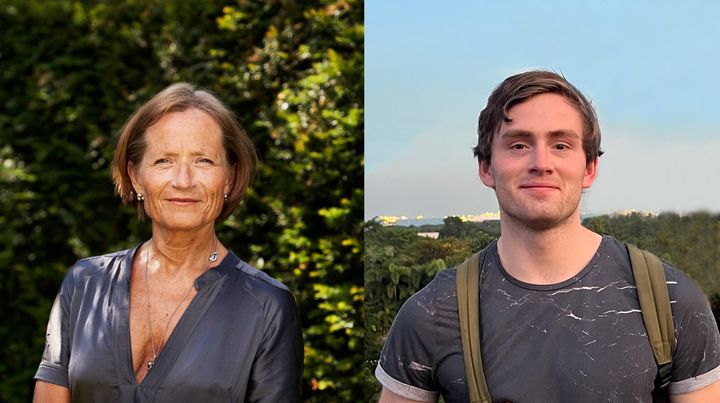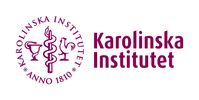AI can improve ovarian cancer diagnoses
A new international study led by researchers at Karolinska Institutet in Sweden shows that AI-based models can outperform human experts at identifying ovarian cancer in ultrasound images. The study is published in Nature Medicine.

“Ovarian tumours are common and are often detected by chance,” says Professor Elisabeth Epstein at the Department of Clinical Science and Education, Södersjukhuset (Stockholm South General Hospital), at Karolinska Institutet and senior consultant at the hospital’s Department of Obstetrics and Gynecology. “There is a serious shortage of ultrasound experts in many parts of the world, which has raised concerns of unnecessary interventions and delayed cancer diagnoses. We therefor wanted to find out if AI can complement human experts.”
AI outperforms experts
The researchers have developed and validated neural network models able to differentiate between benign and malignant ovarian lesions, having trained and tested the AI on over 17,000 ultrasound images from 3,652 patients across 20 hospitals in eight countries. They then compared the models’ diagnostic capacity with a large group of experts and less experienced ultrasound examiners.
The results showed that the AI models outperformed both expert and non-expert examiners at identifying ovarian cancer, achieving an accuracy rate of 86.3 per cent, compared to 82.6 per cent and 77.7 per cent for the expert and non-expert examiners respectively.
“This suggests that neural network models can offer valuable support in the diagnosis of ovarian cancer, especially in difficult-to-diagnose cases and in settings where there’s a shortage of ultrasound experts,” says Professor Epstein.
Reducing the need for expert referrals
The AI models can also reduce the need for expert referrals. In a simulated triage situation, the AI support cut the number of referrals by 63 per cent and the misdiagnosis rate by 18 per cent. This can lead to faster and more cost-effective care for patients with ovarian lesions.
Despite the promising results, the researchers stress that further studies are needed before the full potential of the neural network models and their clinical limitations are fully understood.
“With continued research and development, AI-based tools can be an integral part of tomorrow’s healthcare, relieving experts and optimising hospital resources, but we need to make sure that they can be adapted to different clinical environments and patient groups,” says Filip Christiansen, doctoral student in Professor Epstein’s research group at Karolinska Institutet and joint first author with Emir Konuk at the KTH Royal Institute of Technology.
Evaluating the safety of the AI support
The researchers are now conducting prospective clinical studies at Södersjukhuset to evaluate the everyday clinical safety and usefulness of the AI tool. Future research will also include a randomised multicentre study to examine its effect on patient management and healthcare costs.
The study was conducted in close collaboration with researchers at the KTH Royal Institute of Technology and was financed by grants from the Swedish Research Council, the Swedish Cancer Society, the Stockholm Regional Council, the Cancer Research Funds of Radiumhemmet and the Wallenberg AI, Autonomous Systems and Software Program (WASP).
Elisabeth Epstein, Filip Christiansen and three co-authors have applied for a patent through the company Intelligyn for methods of computer-supported diagnostics. Elisabeth Epstein, Filip Christiansen and Kevin Smith, researcher at the KTH Royal Institute of Technology, also own shares in Intelligyn, for which Professor Epstein is an unsalaried manager. See the paper for a full list of conflicts of interest.
Publication:
”International multicenter validation of AI-driven ultrasound detection of ovarian cancer”, Filip Christiansen, Emir Konuk, Adithya Raju Ganeshan, Robert Welch, Joana Palés Huix, Artur Czekierdowski, Francesco Paolo Giuseppe Leone, Lucia Anna Haak, Robert Fruscio, Adrius Gaurilcikas, Dorella Franchi, Daniela Fischerova, Elisa Mor, Luca Savelli, Maria Àngela Pascual, Marek Jerzy Kudla, Stefano Guerriero, Francesca Buonomo, Karina Liuba, Nina Montik, Juan Luis Alcázar, Ekaterini Domali, Nelinda Catherine P. Pangilinan, Chiara Carella, Maria Munaretto, Petra Saskova, Debora Verri, Chiara Visenzi, Pawel Herman, Kevin Smith & Elisabeth Epstein, Nature Medicine, online 2 January 2025, doi: 10.1038/s41591-024-03329-4.
Kontakter
Elisabeth EpsteinProfessor at the Department of Clinical Science and Education, Södersjukhuset, at Karolinska Institutet.
Tel:+46 70 669 90 19elisabeth.epstein@ki.seFilip ChristiansenPhD Student at the Department of Clinical Science and Education, Södersjukhuset, at Karolinska Institutet.
Tel:+46 72 316 36 56filip.christiansen.2@ki.sePress OfficeKarolinska Institutet
Tel:+46 (0)8 524 860 77pressinfo@ki.seki.se/pressroomBilder


About Karolinska Institutet
Karolinska Institutet is one of the world’s leading medical universities. Our vision is to advance knowledge about life and strive towards better health for all. Karolinska Institutet accounts for the single largest share of all academic medical research conducted in Sweden and offers the country’s broadest range of education in medicine and health sciences. The Nobel Assembly at Karolinska Institutet selects the Nobel laureates in Physiology or Medicine.
Följ Karolinska Institutet - English
Abonnera på våra pressmeddelanden. Endast mejladress behövs och den används bara här. Du kan avanmäla dig när som helst.
Senaste pressmeddelandena från Karolinska Institutet - English
Long COVID biomarkers found – associated with respiratory problems30.4.2025 17:00:00 CEST | Pressmeddelande
Researchers at Karolinska Institutet have identified biomarkers in the blood associated with symptoms of long COVID, particularly severe respiratory disorders. The discovery can pave the way for future diagnosis and treatment. The results are published in the top-ranking scientific journal Nature Immunology.
Long COVID biomarkers found – associated with respiratory problems30.4.2025 17:00:00 CEST | Press Release
Researchers at Karolinska Institutet have identified biomarkers in the blood associated with symptoms of long COVID, particularly severe respiratory disorders. The discovery can pave the way for future diagnosis and treatment. The results are published in the top-ranking scientific journal Nature Immunology.
Higher cigarette taxes may improve childhood survival30.4.2025 00:30:00 CEST | Pressmeddelande
A higher tax on cigarettes in low and middle-income countries can help to reduce child mortality, especially amongst the poorest children, a new study led by researchers at Karolinska Institutet and published in The Lancet Public Health suggests.
New method reveals how the brain and inner ear are formed3.4.2025 20:00:00 CEST | Pressmeddelande
Researchers at Karolinska Institutet have developed a method that shows how the nervous system and sensory organs are formed in an embryo. By labelling stem cells with a genetic ‘barcode’, they have been able to follow the cells’ developmental journey and discover how the inner ear is formed in mice. The discovery, published in Science, could provide important insights for future treatment of hearing loss.
Fluoride in drinking water is associated with impaired childhood cognition7.3.2025 15:30:00 CET | Pressmeddelande
Elevated concentrations of fluoride can occur in well water, and in some countries, it is added to drinking water to counteract caries in the population. A study from Karolinska Institutet in Sweden now supports a few previous studies indicating that exposure to fluoride during the fetal stage or early childhood may impair cognition in children. The study is published in the journal Environmental Health Perspectives.
I vårt pressrum kan du läsa de senaste pressmeddelandena, få tillgång till pressmaterial och hitta kontaktinformation.
Besök vårt pressrum